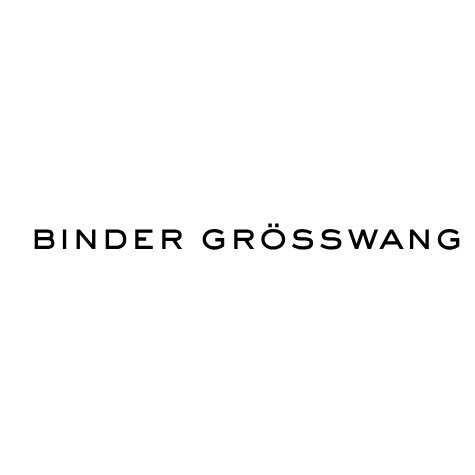Best International Trade Law Lawyers in Austria
Share your needs with us, get contacted by law firms.
Free. Takes 2 min.
Or refine your search by selecting a city:
List of the best lawyers in Austria
About International Trade Law in Austria
International Trade Law in Austria covers a wide range of laws and regulations that govern trade between Austria and other nations. Being a member of the European Union, Austria adheres to EU trade regulations which aim to facilitate free trade practices across member states while also complying with international standards set by organizations such as the World Trade Organization (WTO). Austrian businesses engaging in imports and exports must navigate an array of customs duties, tariffs, trade agreements, and compliance measures to ensure lawful trade operations.
Why You May Need a Lawyer
Individuals and companies may require legal assistance in International Trade Law for several reasons. Challenges may arise from compliance with regulatory requirements, disputes regarding contracts, intellectual property rights, anti-dumping issues, or customs procedures. Legal advice may be necessary for negotiating trade agreements, understanding tax implications, or resolving disputes both domestically and internationally. Businesses engaging in international trade must navigate complex legal landscapes, and professional guidance can help prevent costly mistakes and legal infractions.
Local Laws Overview
A key aspect of International Trade Law in Austria is the compliance with both national and EU regulations. Austria implements the EU's customs union rules, which establish a standardized system for imports from non-EU states. Important laws include customs procedures, tariffs, and non-tariff barriers like health and safety regulations. The Austrian Foreign Trade Act governs trade policy and export controls. It is crucial for businesses to also abide by VAT regulations particular to cross-border trade within and outside the EU.
Frequently Asked Questions
What is the role of customs duty in international trade?
Customs duty is a tariff or tax imposed on goods when transported across international borders. It's important in international trade as it affects the cost and pricing of imported and exported goods.
How do I ensure compliance with Austrian trade regulations?
To ensure compliance, businesses should stay informed about current regulations, engage in regular audits, and consult with legal experts in international trade law. Familiarizing oneself with both EU and Austrian directives is vital.
What are the consequences of violating trade laws?
Consequences can range from penalties and fines to goods seizure and revocation of trading licenses. Serious violations may lead to legal action or business bans from operating in certain markets.
What is the EU's role in Austria's trade law?
The EU provides a framework for trade laws that Austria follows. This includes regulations on customs tariffs, trade agreements, and trading standards to facilitate consistent trade practices across member states.
What steps are involved in resolving international trade disputes?
Steps often involve negotiation, mediation, arbitration, and, if necessary, litigation. Engaging with a lawyer experienced in trade disputes can help navigate these processes effectively.
How can trade agreements impact my business?
Trade agreements can significantly influence factors such as tariffs, market access, and investment opportunities. They can also create obligations regarding compliance and standards that businesses must adhere to.
What is anti-dumping and how does it affect trade?
Anti-dumping refers to measures implemented to prevent companies from exporting products at unfairly low prices. It protects domestic industries but can result in additional duties imposed on certain imports.
Are there specific environmental regulations in international trade?
Yes, businesses must comply with environmental standards and regulations which might affect packaging, waste management, and product contents. This ensures sustainable practices in global trading activities.
What assistance does the Austrian government offer to exporters?
The Austrian government provides various support services such as funding, information on legal compliance, and assistance in finding international partners through bodies like WKO (Austrian Federal Economic Chamber).
Can non-compliance with trade law lead to contract breaches?
Yes, non-compliance may lead to contract breaches which can result in legal disputes or financial harm. It is vital to understand the compliance standards set in international contracts to avoid these issues.
Additional Resources
There are several resources and organizations that offer assistance and information regarding International Trade Law in Austria. The Austrian Federal Economic Chamber (Wirtschaftskammer Österreich - WKO) provides comprehensive trade-related guidance and support. The Austrian Ministry of Finance is another essential source for customs and tariff information. For EU trade regulations, consult the European Commission's trade department. Legal journals and trade law publications can also be valuable for staying updated on new developments.
Next Steps
If you find yourself in need of legal assistance concerning International Trade Law in Austria, consider consulting with a law firm specializing in this area. Conduct thorough research and enlist a legal expert with experience dealing with both national and EU trade laws. Prepare documentation related to your trade activities and be ready to discuss your specific needs and concerns. Additionally, explore educational resources to better understand the complexities of international trade law and to ensure a proactive approach in managing compliance and legal challenges.
Lawzana helps you find the best lawyers and law firms in Austria through a curated and pre-screened list of qualified legal professionals. Our platform offers rankings and detailed profiles of attorneys and law firms, allowing you to compare based on practice areas, including International Trade Law, experience, and client feedback.
Each profile includes a description of the firm's areas of practice, client reviews, team members and partners, year of establishment, spoken languages, office locations, contact information, social media presence, and any published articles or resources. Most firms on our platform speak English and are experienced in both local and international legal matters.
Get a quote from top-rated law firms in Austria — quickly, securely, and without unnecessary hassle.
Disclaimer:
The information provided on this page is for general informational purposes only and does not constitute legal advice. While we strive to ensure the accuracy and relevance of the content, legal information may change over time, and interpretations of the law can vary. You should always consult with a qualified legal professional for advice specific to your situation.
We disclaim all liability for actions taken or not taken based on the content of this page. If you believe any information is incorrect or outdated, please contact us, and we will review and update it where appropriate.
Browse international trade law law firms by city in Austria
Refine your search by selecting a city.
















